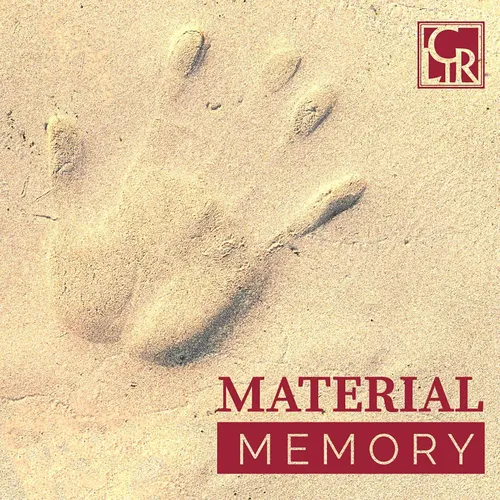
Material Memory
We live in the age of information, but how often do we think about what has been lost—or nearly lost? From memories left on discarded machines to the voices of ancestors trapped on obsolete media, we are losing parts of human history each day.
In theme-based seasons, Material Memory explores the effects of our changing environment—such as digital technologies, the climate crisis, or global human displacement—on our ability to access the record of our shared humanity, and the critical role that libraries, archives, museums, and other public institutions play in keeping cultural memory alive.
- Update frequency
- every 19 days
- Average duration
- 35 minutes
- Episodes
- 25
- Years Active
- 2019 - 2022

Cradle of Student Protest
Travel to Nashville, Tennessee, “the cradle of student protest,” to learn about Fisk University’s activist legacy–from the Jubilee Singers in the 1800s to the sit-ins of the 1960s to Black Lives Matt…

Sankofa
Travel to the Lowcountry of South Carolina to learn about the Mather School, founded after the Civil War to serve the newly freed, and the Gullah Geechee people, whose traditional way of life is thre…

By Actions and Not by Words
Dive into Tuskegee University’s vast collections, from the notebooks of George Washington Carver to archival speeches from luminaries Myrlie Evers, Shirley Chisholm, Amelia Boynton Robinson, Jackie R…

If Walls Could Talk
Learn about Alcorn State University student life–and civil rights protests–in the 1960s, and how a community-centered approach to librarianship has made Alcorn indispensable to the people of Lorman, …

Walking on Sacred Ground
Morgan State University archivist Ida E. Jones discusses the history of Maryland's largest HBCU and how it is deeply entwined with the history of Black politics, activism, and media, particularly in …

Cadence to the Rhythm of Life
Kofi Amu Horne, who created the theme music for this season, started drumming with his Ghanaian mother before he was two. Here, he talks about drumming as a spiritual practice and its importance to t…

There's Magic in Creating Something from Nothing

Our Ancestors' Wildest Dreams

Season 3 Trailer: HBCU Library Alliance Tour

Crisis as Catalyst: Notes from DCDC
Special episode! Three stories about crisis as catalyst: capturing NHS COVID-19 stories; rethinking anti-racism and anti-ableism at the Wellcome Collection; & toward a climate action plan at the Nati…

What We've Learned and What We Can Do
What did we learn? What can we do? In the season 2 finale, host Nicole Kang Ferraiolo and producer Lizzi Albert share their biggest takeaways, from climate change’s unequal impacts to the importance …

Heritage Has a History
Anthropologist Dr. Blessing Nonye Onyima discusses the effects of colonialism and climate change on Nigeria’s cultural heritage, from the changing migration patterns of Fulani nomads to the looting o…

The Home of Memory
Where do we house our memories? What does it mean to lose our records? Drawing on her experience as an archivist and as a hurricane evacuee, Itza Carbajal speaks about the impacts of the climate cris…

Living Heritage
Intangible or “living” cultural heritage includes folk arts, food, and other traditions. Host Nicole Kang Ferraiolo talks to media scholar Saiful Alam Chowdhury about how climate change affects livin…

Climate Displacement and Cultural Resilience
Victoria Herrmann, president of the Arctic Institute, discusses climate displacement in the United States, the risks it poses to communities and traditions, and how cultural memory builds resilience.

How We Tell the Story of Disaster
Anthropologist and emergency management specialist Dr. Crystal Felima speaks about her work on climate hazards, disaster narratives in Haiti and Puerto Rico, and the role of libraries.

Archivists Against the Climate Crisis
Archivists Eira Tansey and Ben Goldman discuss their research on the impact of climate change on U.S. archives. They share their approaches to climate activism and the superpowers librarians can bri…

Does it Matter? Cultural Memory and the Climate Crisis
Climate change is the biggest challenge facing humanity—but how does cultural heritage fit in? Hear from all seven of this season’s guests as they weigh in on why culture matters, what’s at stake, an…

Sound and Meaning: Preserving Native American Voice and Song
In this episode of Material Memory, we return to the Autry Museum of the American West in southern California, where a project is underway to preserve audiovisual materials documenting Native America…

"Hello, Friends" The Story of the Indians for Indians Radio Hour
In this episode of Material Memory, we talk with a staff member at the University of Oklahoma who has been working to preserve the recordings of the Indians for Indians Radio Hour program, a long-run…